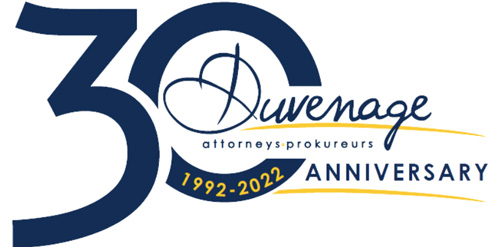WHAT HAPPENS WHEN AN EMPLOYEE USES THEIR PRIVATE CELL PHONE TO TAKE UNAUTHORISED PHOTO’S INSIDE THE EMPLOYER’S BUSINESS PREMISES?
Employees may innocently be taking photos while in the business premises, however, there could also be sinister intentions. The employee may merely be taking the photos to show their working environment to their friends and family, or if they have a more sinister intention, they may be taking photos to capture the employer’s business operation methods in order to compete with the employer or to assist a competitor to get an advantage. This would amount to industrial espionage.
The business owner’s right to protect the trade secrets and confidential information of its business is established in the common law. These trade secrets, which also includes the manufacturing process, production lay-out, ingredients and/or methodologies can all be considered as a “protectable interest”.
These protectable interests, which the owner has a right to protect, are also the owner’s private property and gives the owner the right to make rules on how employees and others must deal with them. In contrast to this, the employee’s phone and its contents are the private property of the employee. The employee’s privacy is therefore protected by the Constitution and other privacy laws.
The question that arises is whether the employer can demand that the employee must hand over or delete the photos of the workplace? This question arose and was dealt with in the matter of NUMSA and Another v Rafee N.O. and Others (JR1022/12) [2016] ZALCJHB 512; [2017] 2 BLLR 146 (LC) (31 May 2016).
In this matter the employee took photos of the employer’s production line with his cell phone. The employer discovered this and instructed the employee to delete the photos and to hand over the phone in order for the employer to confirm that the photos were deleted. The employee refused to hand over the phone, insisting that it was his private property and that he was entitled to take photos with it. The employer held a disciplinary inquiry and accordingly dismissed the employee for failing to obey its instructions.
The employee referred an unfair dismissal dispute to the bargaining council. The arbitrator ruled that the employer’s instruction to delete the phots and to hand over the phone to check were reasonable and as a result dismissal was fair.
The employee took the decision on review to the Labour Court, arguing that the employer infringed on his constitutional right to privacy and to lawful possession of his property.
The Labour Court agreed with the arbitrator’s decision and dismissed the review. The reason for its decision was that the right to privacy is not absolute in the employment context as the right to privacy must be balanced against the employer’s right to protect its business interests. The court also found that the employer did not infringe the employee’s right to possession of private property, since the employer did not intend to confiscate the cell phone but only wanted it to check that the photos had been deleted.
The employee then appealed to the Labour Appeal Court (LAC). The LAC agreed with the Labour Court and dismissed the appeal. The LAC noted that the arbitrator’s decision to confirm the fairness of the dismissal was reasonable since the employee’s conduct had resulted in a breakdown of the trust relationship with the employer.
Employers should include a clause in the employment contract that prohibit employees from taking photos (with their private cell phones or otherwise) of confidential areas or information in the employer’s business operations. This clause should also empower the employer to conduct random checks of the employees’ cell phones and the right to order that unauthorised photos be deleted.





